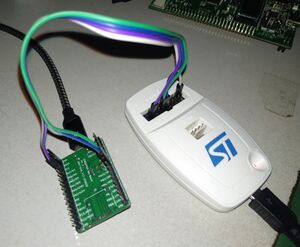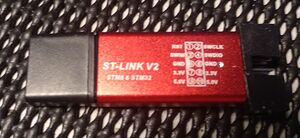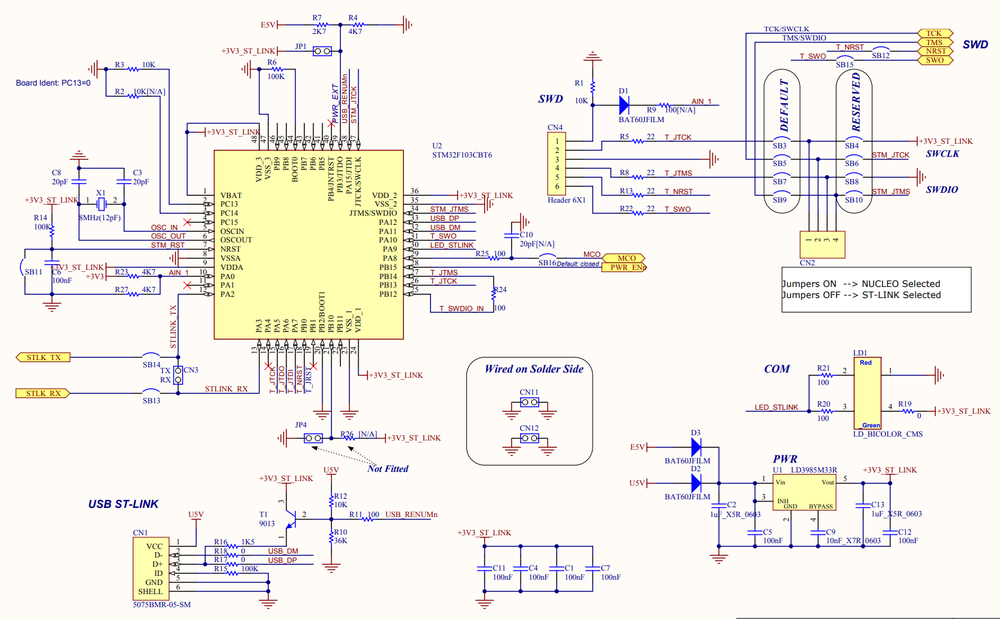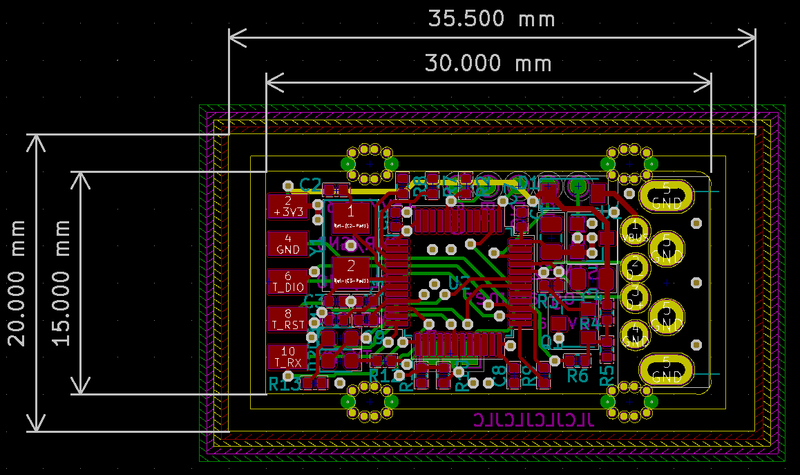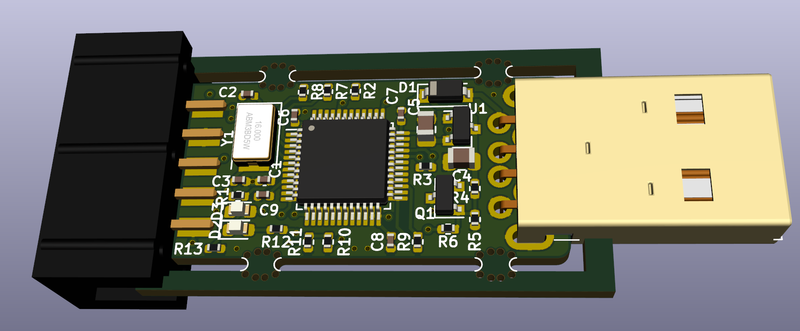Difference between revisions of "DIY STM32 Programmer (ST-Link/V2-1)"
| Line 10: | Line 10: | ||
[[File:STLink-v2 (Chinese knock off).jpg|thumb|Chinese knock off ST-Link/V2]] | [[File:STLink-v2 (Chinese knock off).jpg|thumb|Chinese knock off ST-Link/V2]] | ||
There are also a lot of Chinese clones available and while they have some limitations they also work quite well. | There are also a lot of Chinese clones available and while they have some limitations they also work quite well. | ||
| + | |||
| + | Unfortunately they do not have the SWO pin on the header, so any debug trace is impossible. For flashing and normal debugging they work fine though. | ||
== Original ST-Link V2.1 == | == Original ST-Link V2.1 == | ||
Revision as of 01:59, 13 July 2021
ST-Link devices are almost essential when developing software for the STM32 MCUs. They are relatively cheap and easily available.
They roughly fall into two different categories. ST themselves make a number of them and they all work quite well.
One thing that annoys me with the original ST-Link devices is that the programming header is unlabelled. This essentially mean that every time I use it I have to Google for the actual pinout.
There are also a lot of Chinese clones available and while they have some limitations they also work quite well.
Unfortunately they do not have the SWO pin on the header, so any debug trace is impossible. For flashing and normal debugging they work fine though.
Original ST-Link V2.1
The schematic of the original ST-Link is readily available
Schematics
Based on ST's original schematics, creating a version using only parts from JLCPCB's parts library was easy.
One thing I left out was the serial resistors of the programming header. This might very well come back and bite me in the ass but space is going to be at a premium.
PCB
The final rev. a layout looks like this:
The KiCAD 3D model:
